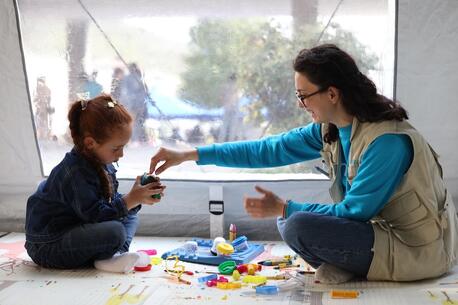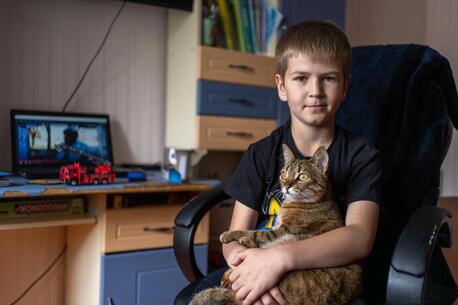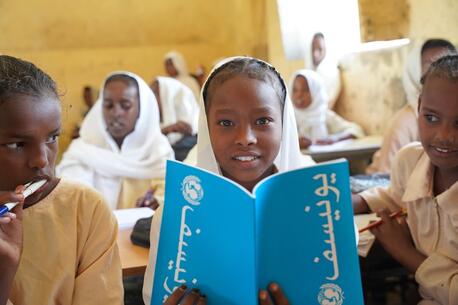
Mental Health
for Every Child
Climate change and other existential threats are raising concerns about the mental health of the world's children. For UNICEF, supporting children's mental health is just as important as supporting their physical health.
How UNICEF supports children’s mental health
A big part of UNICEF's mission to protect the world's most vulnerable children extends to children's mental health — an area of growing concern in the midst of global conflict, crises and climate change. These existential threats are taking a heavy toll on children and raising concerns about the mental health of a generation.
UNICEF works to address acute mental health needs during crises and promote long-term mental well-being for children and caregivers in communities around the globe.
At least 1 in 7 young people between the ages 10 and 19 worldwide have been diagnosed with a mental disorder
Child mental health and psychosocial support programs have long been a key component of emergency relief efforts for children living in conflict zones — Palestinian, Sudanese and Syrian children, among many others.
Whenever and wherever children and adolescents are in crisis, UNICEF works with partners to provide psychosocial support, counseling and vocational and life-skills training.
Providing mental health support to children living in conflict
Consider children living through the war in Ukraine. Children who were at school one day and running for their lives the next. Children who have witnessed brutality and destruction. Children who have lost loved ones.
UNICEF understands that children exposed to trauma and war need mental health support. Fears and anxieties that arise in times of stress can have long-term, even lifelong effects.
All across Ukraine, UNICEF and partners have set up more than 200 Spilno centers, each one a comfortable, nurturing space where children can go to just be kids again for a while, away from the pressures of growing up in a war zone. At a Spilno, families can connect with support services, including psychosocial support and counseling.
Strengthening mental health support systems: a long-term strategy for improving children's lives
Every year, in the course of responding to humanitarian crises worldwide, UNICEF helps tens of millions of children and caregivers access mental health and psychosocial support.
But meeting mental health needs during emergencies is only part of UNICEF's strategy when it comes to supporting children's mental health. For healthy development, children need mental health support throughout their childhood.
UNICEF works in communities to foster open dialogue around mental health concerns, which helps to de-stigmatize the topic. "It's okay not to be okay" is a helpful message for children and adolescents to hear.
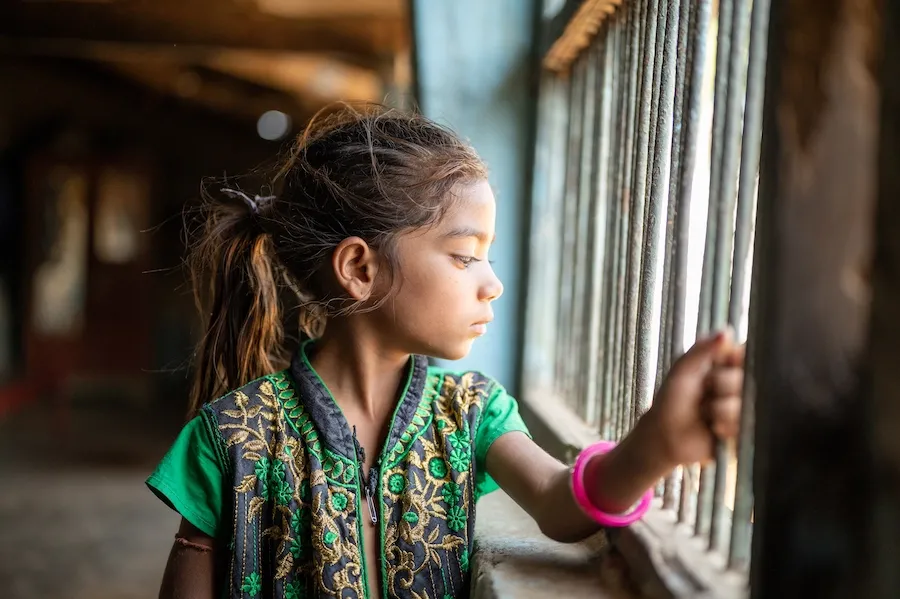
Caregivers can foster good mental health by nurturing children and allowing them to play, grow and express themselves. And so, UNICEF supports training programs that reach millions of caregivers every year, helping to build these capacities within communities.
Historic underinvestment in mental health continues to hurt all children, however. Less than 1 percent of governmental health budgets in low-income countries goes toward mental health. All countries, including the U.S., face a gap between mental health needs and access to quality services. UNICEF and UNICEF USA also continue to advocate with government partners to increase investments in and attention toward children's mental health.
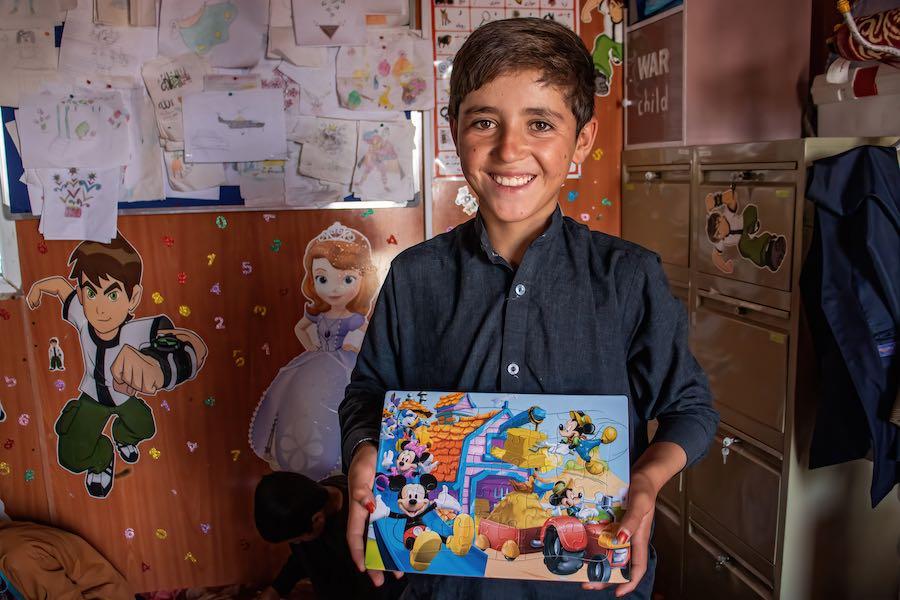
Help UNICEF reach more children and adolescents with mental health services and support. Donate today.

